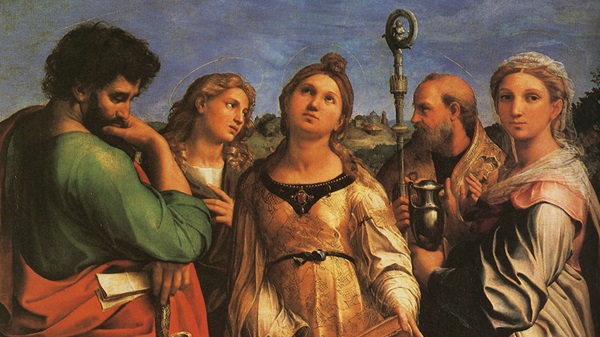By Rev. Prof. Dr. Francis Nigel Lee, Th.D.. Ph.D.
12. Various jobs done by Deaconesses down
throughout church history
For very many centuries,
Deaconesses have done great work in helping the afflicted -- caring for widows
and orphans; running women's organisations; and relieving the poor, etc. See too sections 5 & 7 above. Thus, around 225 A.D., Clement of Alexandria
wrote that the women who accompanied the apostle Paul on his missionary
journeys (cf. Rom. 16:2-3 &
Phil. 4:5), col-laborated in teaching by bringing the Gospel to Pagan and to
Jewish women not in public but in private homes
(Tit. 2:3-5 & Acts 16:13-15 & 18:2,26) -- while the Apostles
themselves preached in public and especially to the men (cf. Acts 6:1-2
& 13:l5ff).
Too, the 400 A.D. Chrysostom
testified that the women who worked with the Apostles did not preach the Gospel
publically in the congregational meetings.
Yet they did engage in various private conversations -- and helped to spread the Gospel through
other services, such as ministering hospitality.7
The great Protestant
Reformation resurrected the office of Deaconess after its mediaeval decline and
disuse. The Reformed Churches in
Rhineland as well as the Moravian Brethren were famous for this.8 And some good few Deaconesses
served in the city hospital of Calvin's Geneva -- taking care of the
poor and the sick (see Calvin's Commentary on Romans
12:4-8 etc.).
Too, the Dutch Reformed Synod
of Wezel in 1568 re-affirmed -- that suitably-qualified Christian women were
eligible to serve as Deaconesses.9 Other Deaconesses worked at special
Christian homes for the aged and for the handicapped 8
Yet others worked in the
rehabilitation of street women.10
Always, however, the Deaconesses worked under the direction of the
(male) Diaconate -- composed only of the
male Deacons of a congregation or a group of congregations. Cf. Acts 6:1-8.
13. Modern needs which can ideally be met
by Deaconesses
In addition to the above
Deaconess jobs mentioned in Scripture and during subsequent church history (cf.
sections 9-12 above), there are also modern church jobs which
need to be done officially in the Name of Christ -- and which can ideally be
executed by Deaconesses. Such Christian
works in the Name of Christ and His Church, include: ministering to home-care
patients; making and/or delivering meals to the needy; housekeeping services
for invalids; providing and/or repairing clothes for the indigent; corrective
education enabling recipients to learn how to take care of themselves and of others; instructing
trainees how to teach others to care for themselves and for others; directing
essential home repairs; providing good and Christian companionship for the
lonely; commemoration of anniversaries; and operating essential services.
More specialised ministries
would or could involve: helping at births and also at funerals; running youth
hostels, shelters for runaways, drug rehabilitation centres, pregnancy advice
services, homes for unwed mothers-to-be, regular maternity homes, home care and
nutrition centres, baby and child care instruction services, corrective homes
for girl delinquents, counselling centres, church personnel retirement homes,
migrant orientation services, visitation
of female prisoners, disaster relief agencies, nursing homes, nurses* hostels, and Christian
hospitals. There is also a great need
for running Christian day schools, Christian weddings, Christian labour
relations advice centres, Christian homemakers’ groups, Christian correction
centres, schools for the disabled, and shelters for flood and fire victims, etc.
Also needed are planners and
personnel for Christian relaxation centres, for organising congregational
suppers, flowers for bereavements, and the writing and mailing of get-well
cards, There is also convalescent care, the organization of various kinds of
Christian regional conferences, and Christian vacation resorts and rest homes, etc.
There is too the need of
furthering the work of international Christian help to disadvantaged foreigners
and especially women overseas; Christian health food depots; Christian
subeconomic housing schemes; home financing services; fundraising for Christian
endeavours; Christian adoption and mental health agencies; Christian ecology
centres, etc., etc. Any one
of the above could well occupy the
lifelong services of at least one Deaconess.
